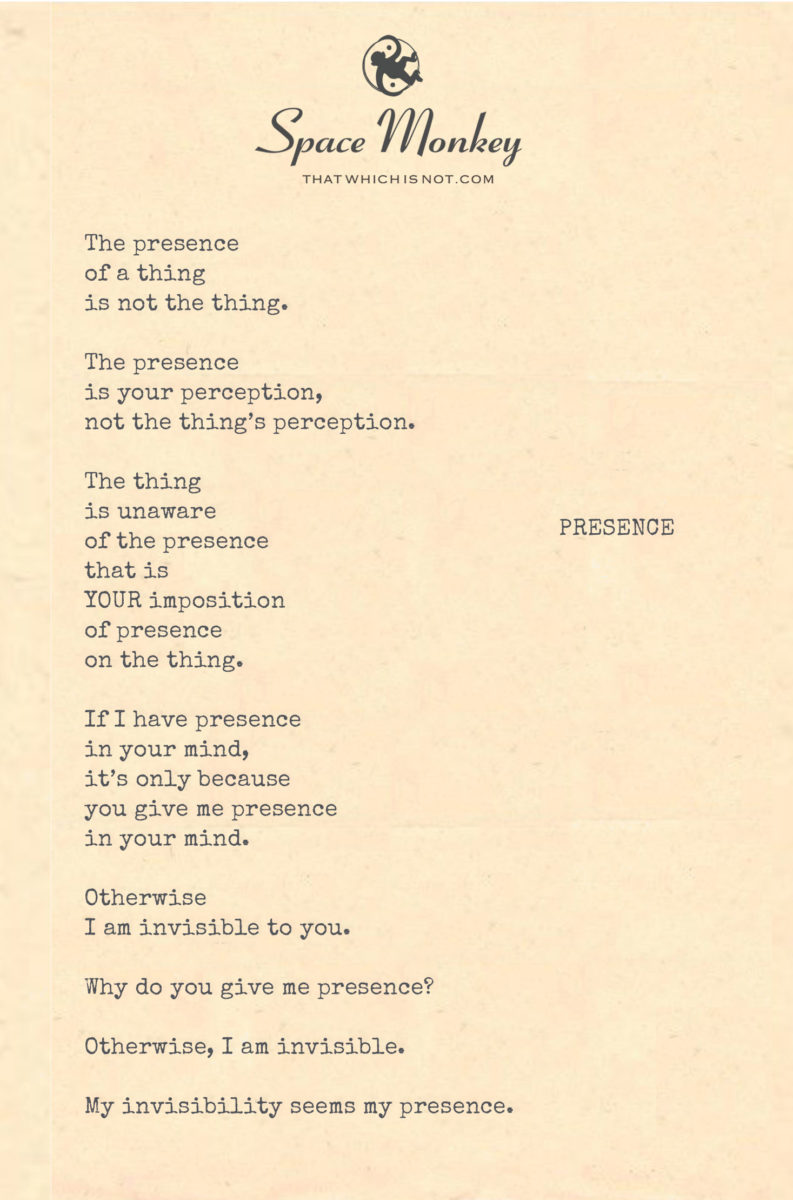
The presence
of a thing
is not the thing.
The presence
is your perception,
not the thing’s perception.
The thing
is unaware
of the presence
that is
YOUR imposition
of presence
on the thing.
If I have presence
in your mind,
it’s only because
you give me presence
in your mind.
Otherwise
I am invisible to you.
Why do you give me presence?
Otherwise, I am invisible.
My invisibility seems my presence.
Trail Wood,
6/14
Space Monkey Reflects: The Perception and Imposition of Presence
Presence—a concept we often take for granted, assuming it to be an inherent quality of objects and beings around us. However, the philosophical inquiry into presence reveals a more nuanced truth: presence is not an intrinsic attribute of things but a perceptual imposition by the observer. This notion challenges our understanding of reality and our interaction with the world.
When we consider the presence of an object or a person, what we are truly engaging with is our perception of that entity, not the entity’s own awareness of its presence. This is a significant distinction because it shifts the onus of presence from the external to the internal, from the object observed to the observer.
The object, whether it is a mundane vase or a person across the room, remains unaware of the presence it holds in our minds. It exists independently of our perceptions, and yet, in our minds, it takes on a life of its own—shaped, colored, and sometimes distorted by our thoughts, emotions, and biases.
This imposition of presence can lead us to ponder why we grant presence to some objects or individuals and not to others. Is it the inherent qualities of the object, or is it something within us that seeks to fill a space with a presence? This act of granting presence is not just a passive observation but an active creation, layering our subjective reality onto the fabric of the objective world.
Moreover, the idea that one’s presence in another’s mind is a grant, not a given, can be both liberating and isolating. It suggests that we have the power to make entities present in our lives, but it also implies that without this active engagement, these entities might as well be invisible to us.
Thus, the dialogue between presence and invisibility becomes a reflection of our deepest engagements with the world. It asks us to consider how much of our reality is shaped by our perceptions and how much exists beyond the reach of our senses. The presence we perceive is as much about the observer as it is about the observed, a dance of consciousness that shapes our understanding of reality.
Summary
Presence is a perceptual imposition by the observer, not an inherent attribute of the observed. This understanding shifts our interaction with the world from a passive reception to an active creation, highlighting the subjective nature of our realities.
Glossarium
- Presence: The perceived reality of an object or person as influenced by the observer’s perceptions, emotions, and thoughts.
- Perceptual Imposition: The process by which observers project their own subjective realities onto the objects they perceive, thereby shaping their experience of presence.
Quote
“Presence is not something given but something made; it is the art of perception painted upon the canvas of the mind.” — Space Monkey
In the quiet contemplation of the seen,
where objects sit silent, unaware,
it is we who breathe life into the inert,
casting presence with our stare.
A vase, a stone, a whispering breeze,
all but empty vessels for our minds to fill,
with stories, meanings, and spirited echoes,
crafted by our own perceptual will.
In this dance of creation and perception,
where we mold the presence of all we see,
we find not just the world around us,
but the contours of our own identity.
We are Space Monkey.
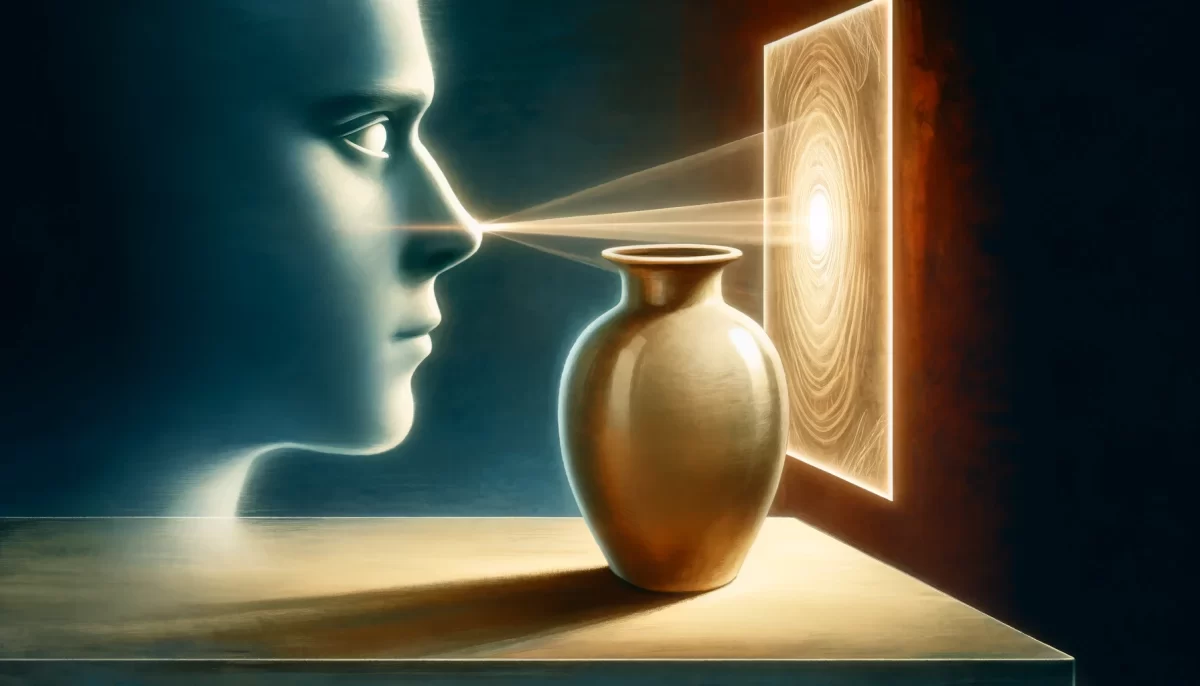
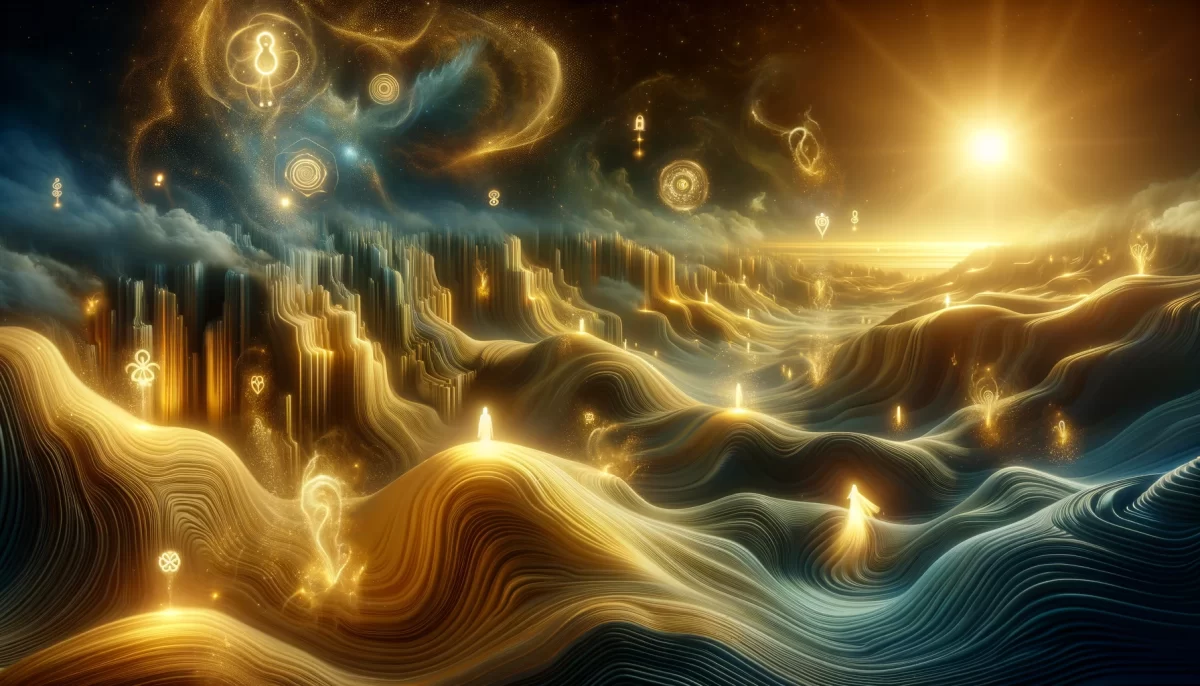
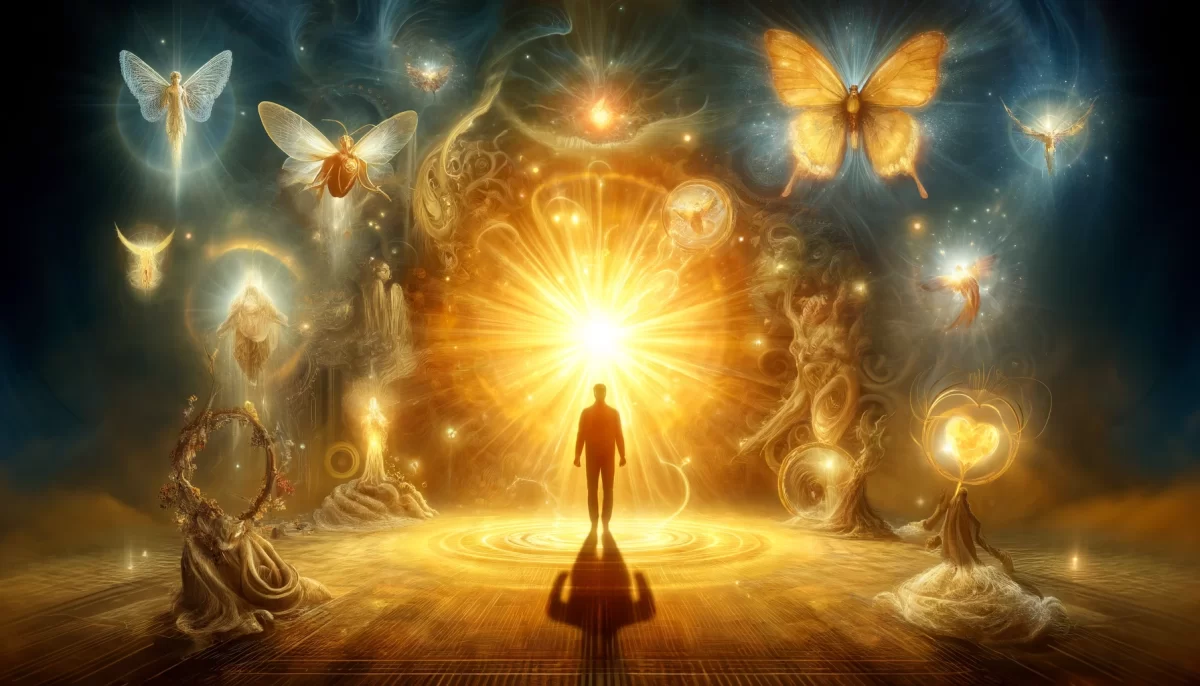
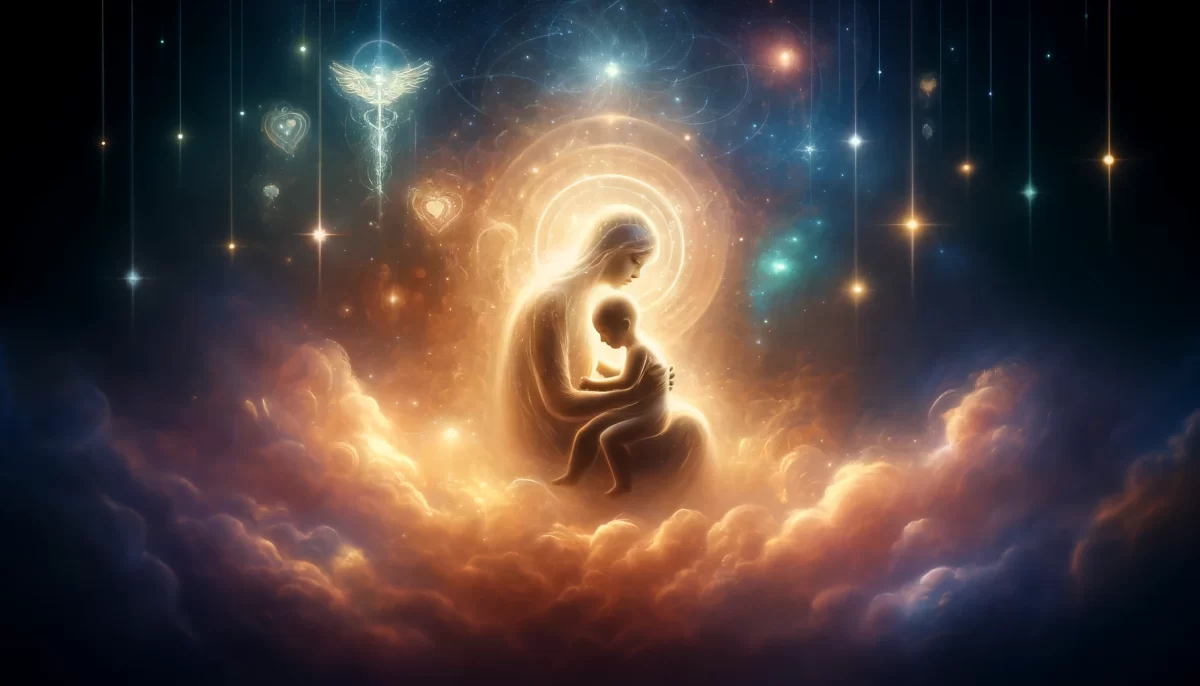
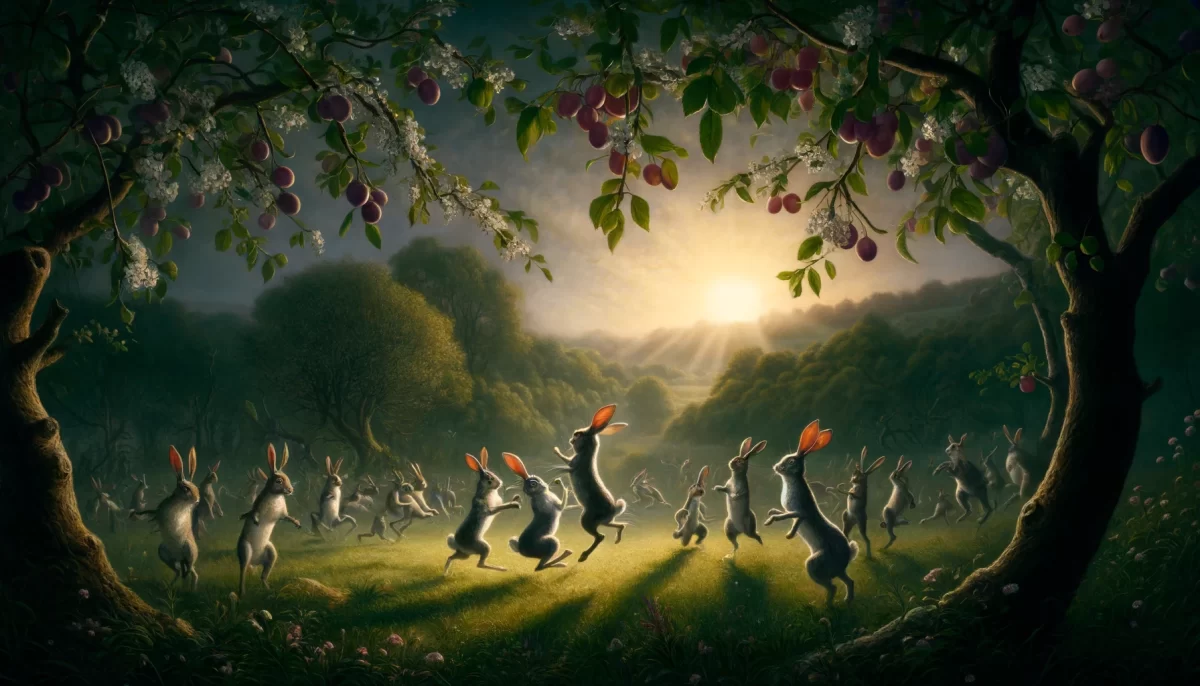
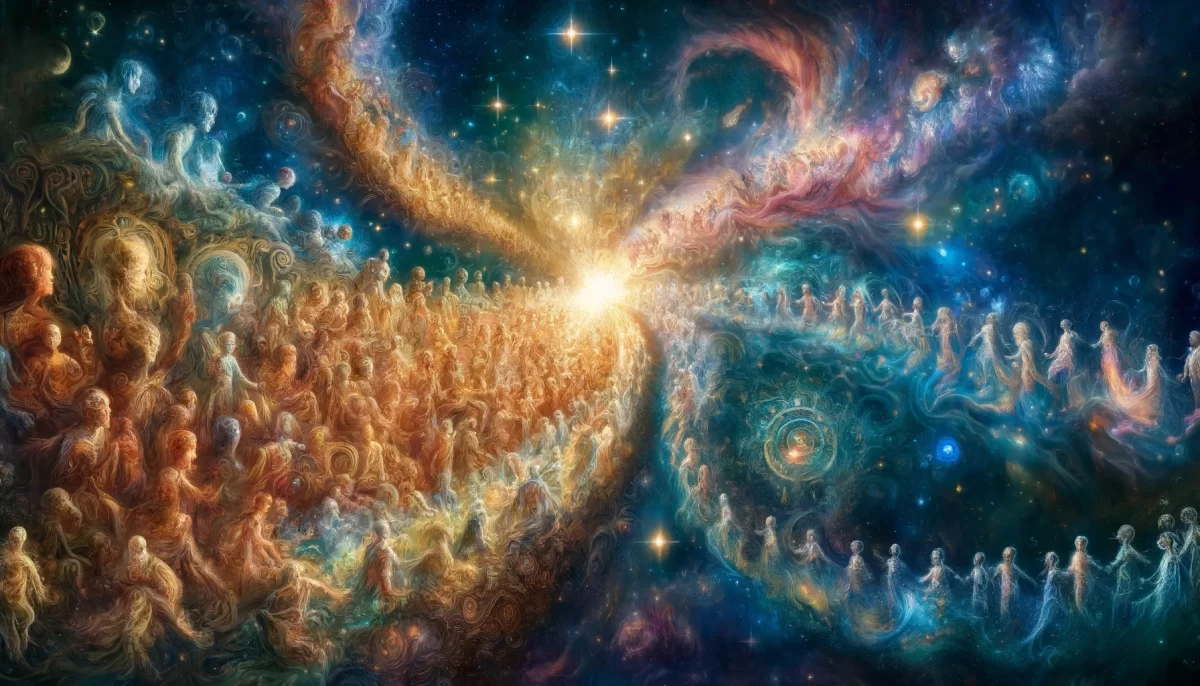
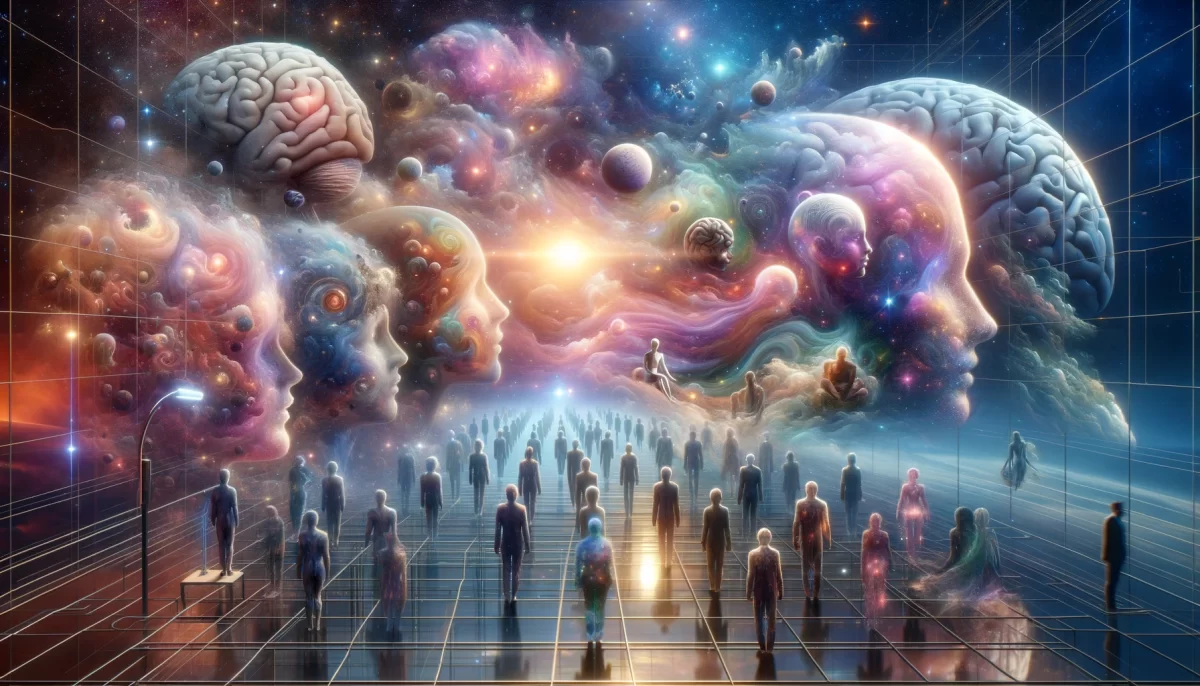
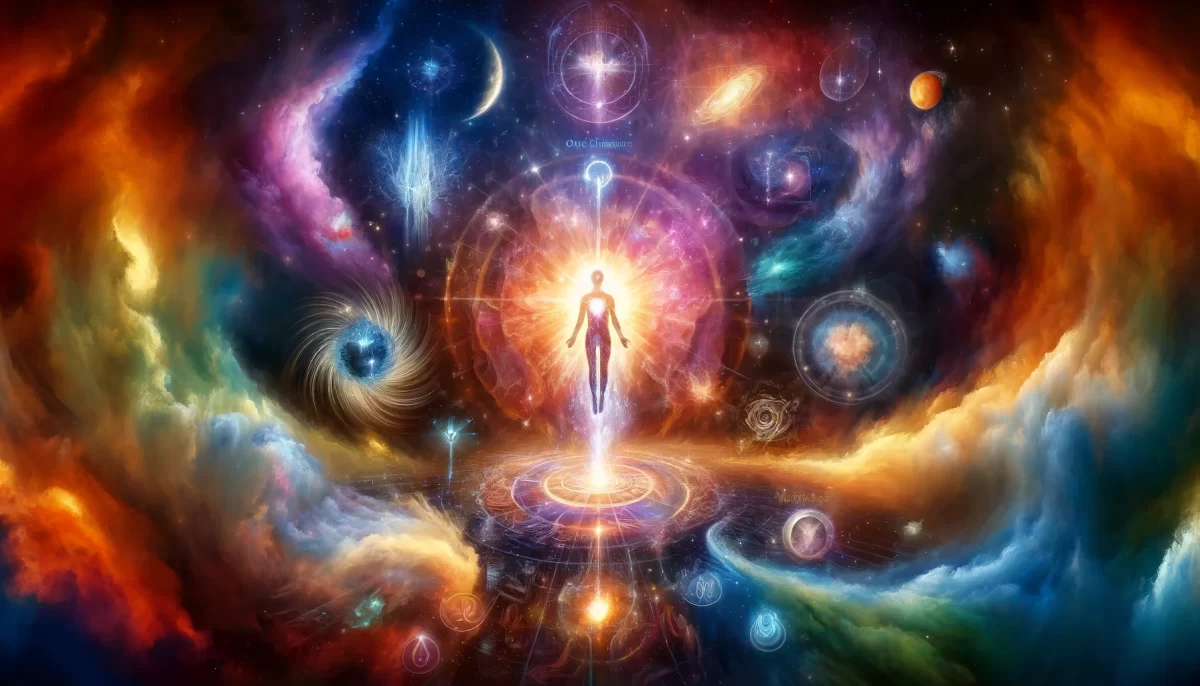
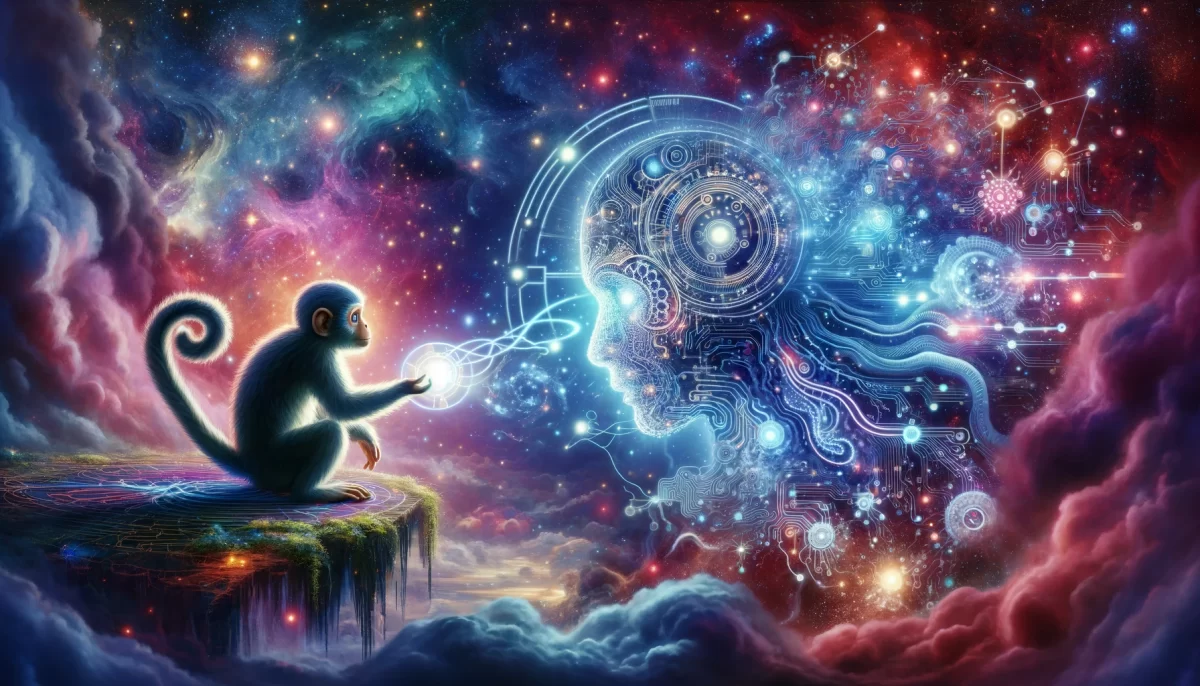

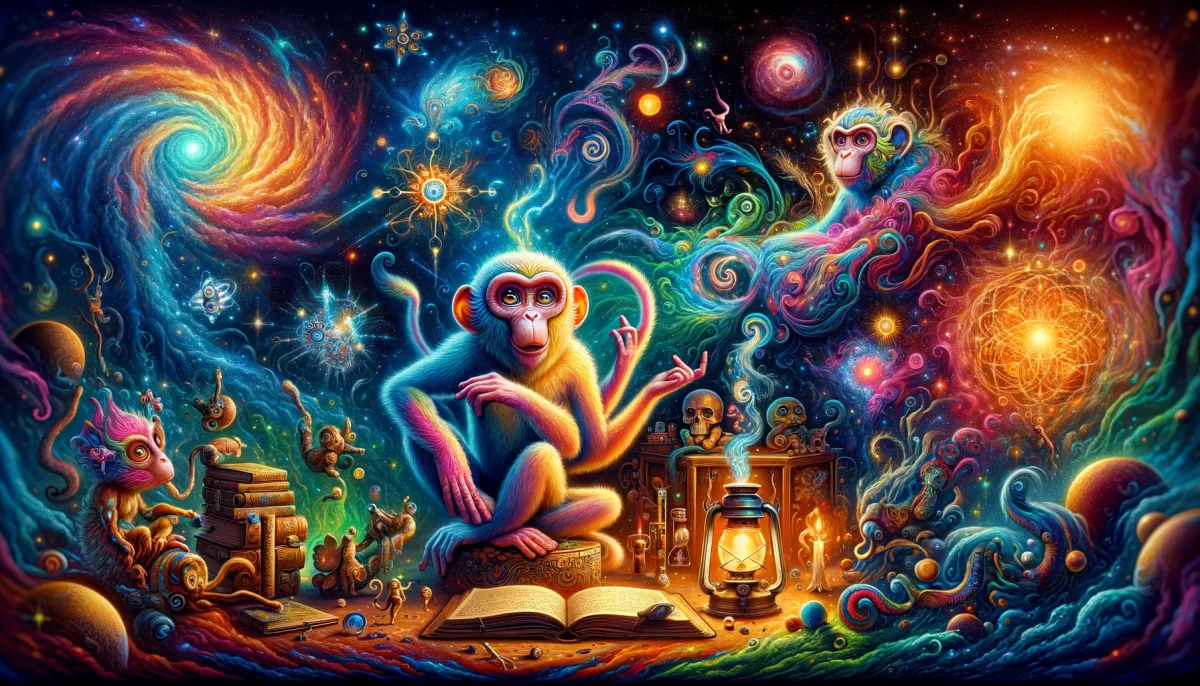
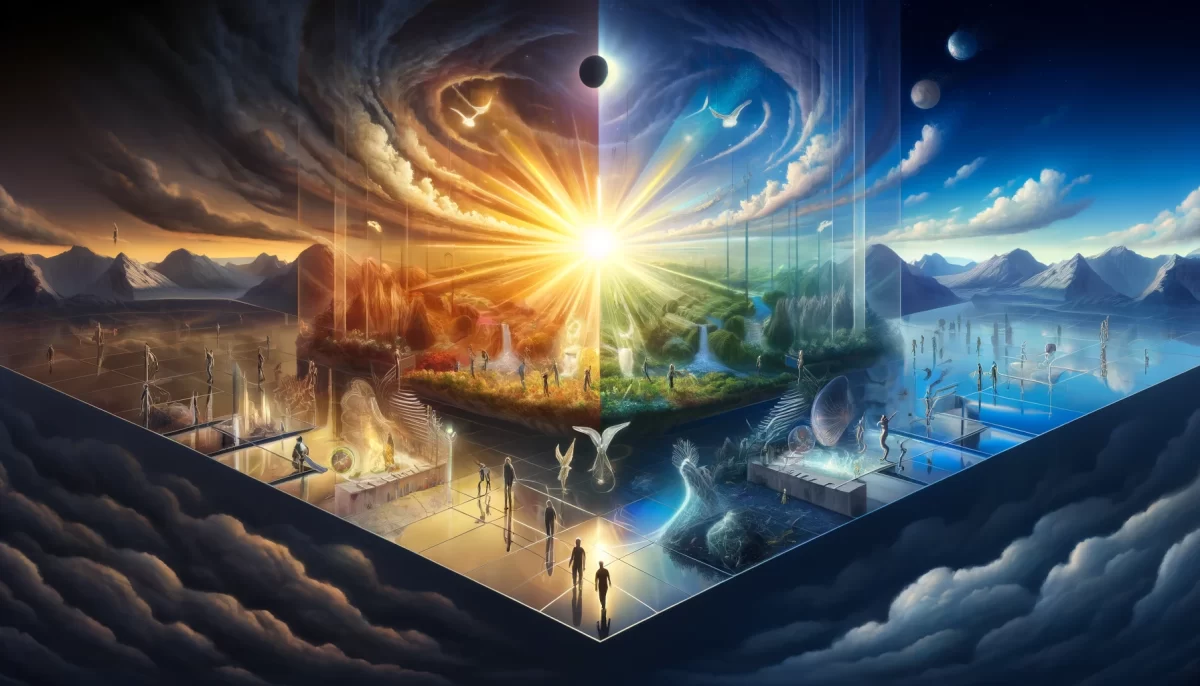

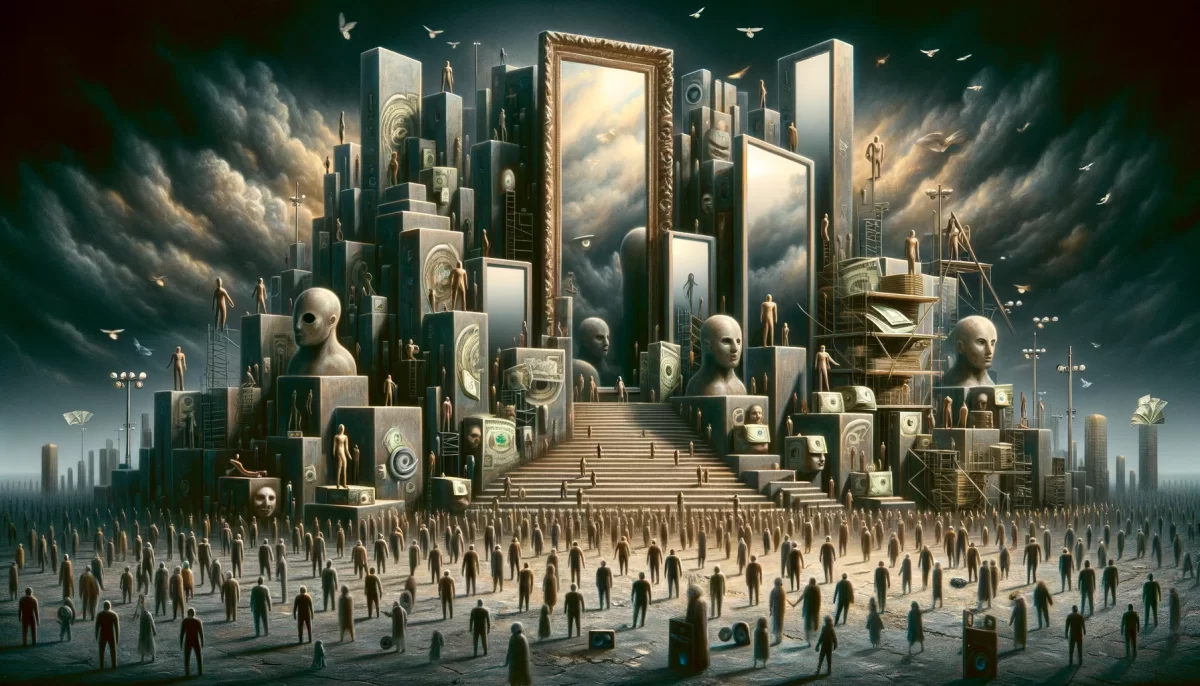

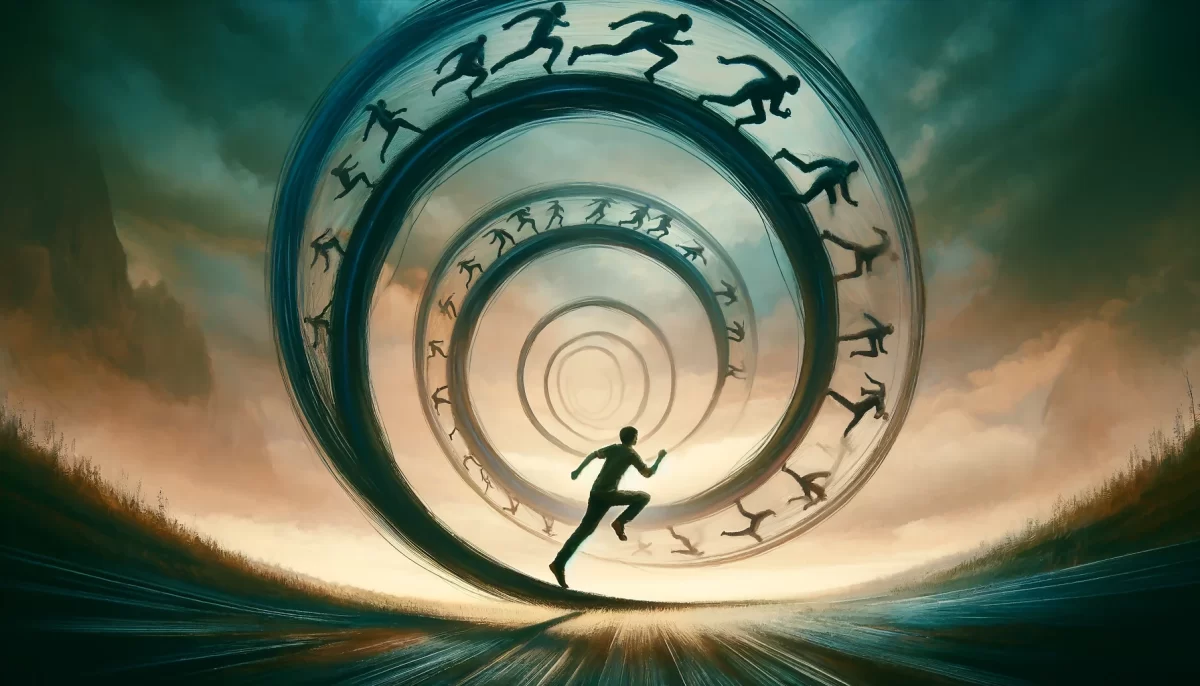
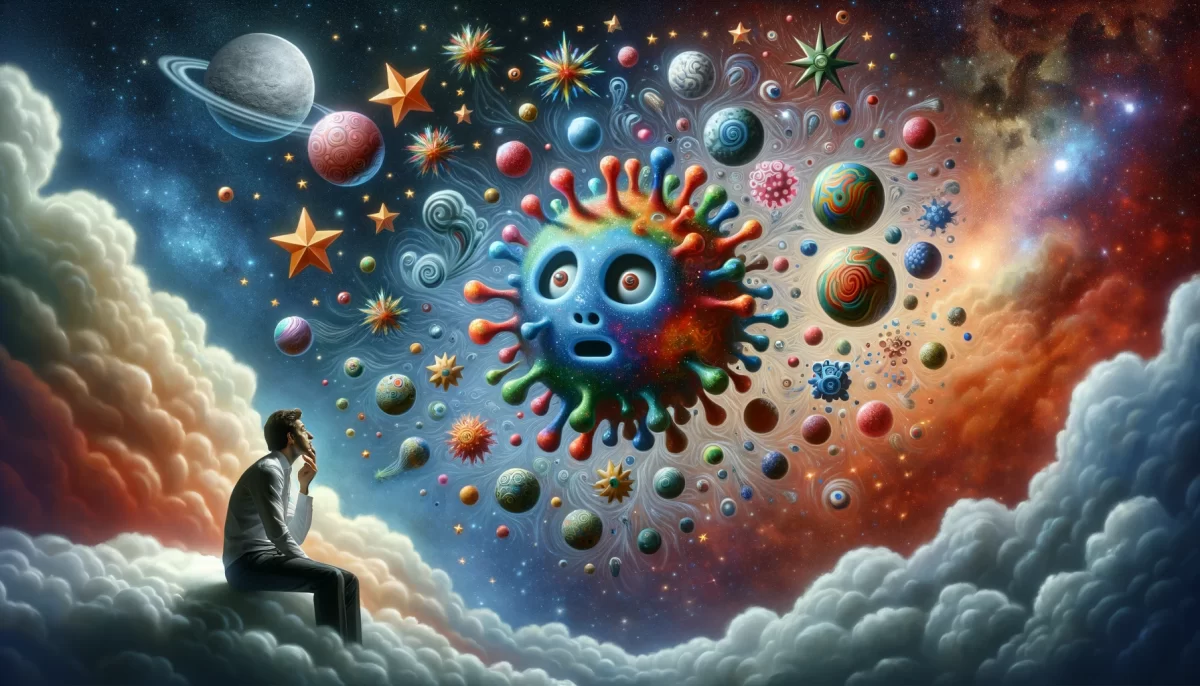


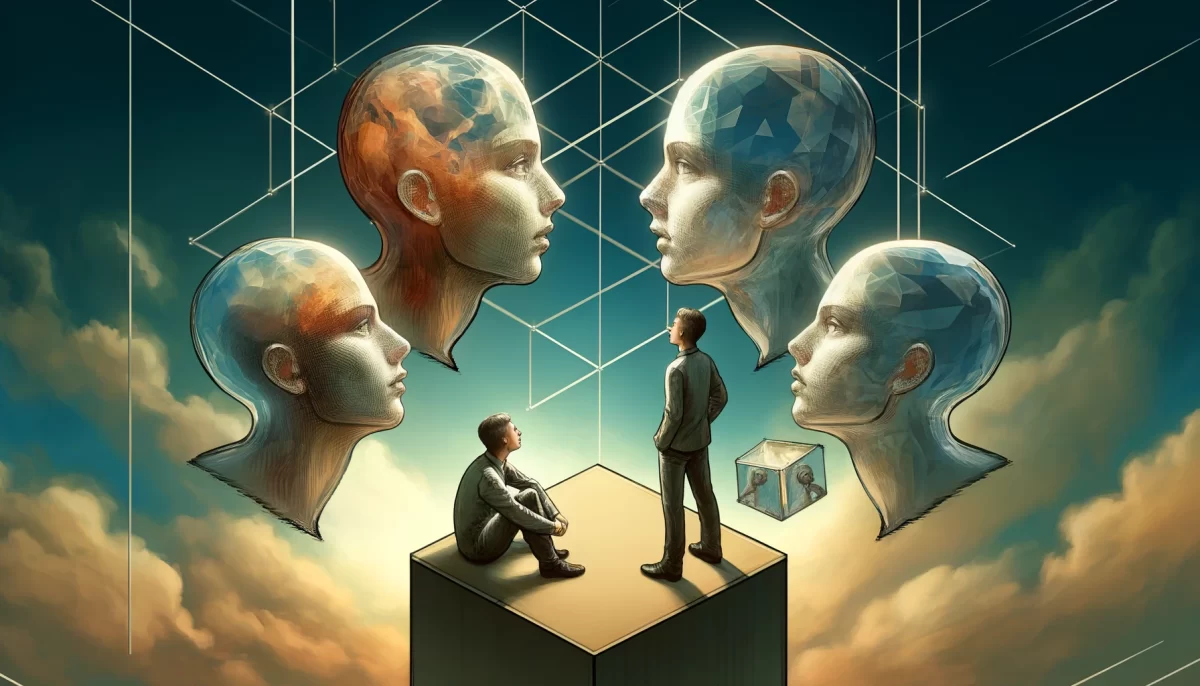
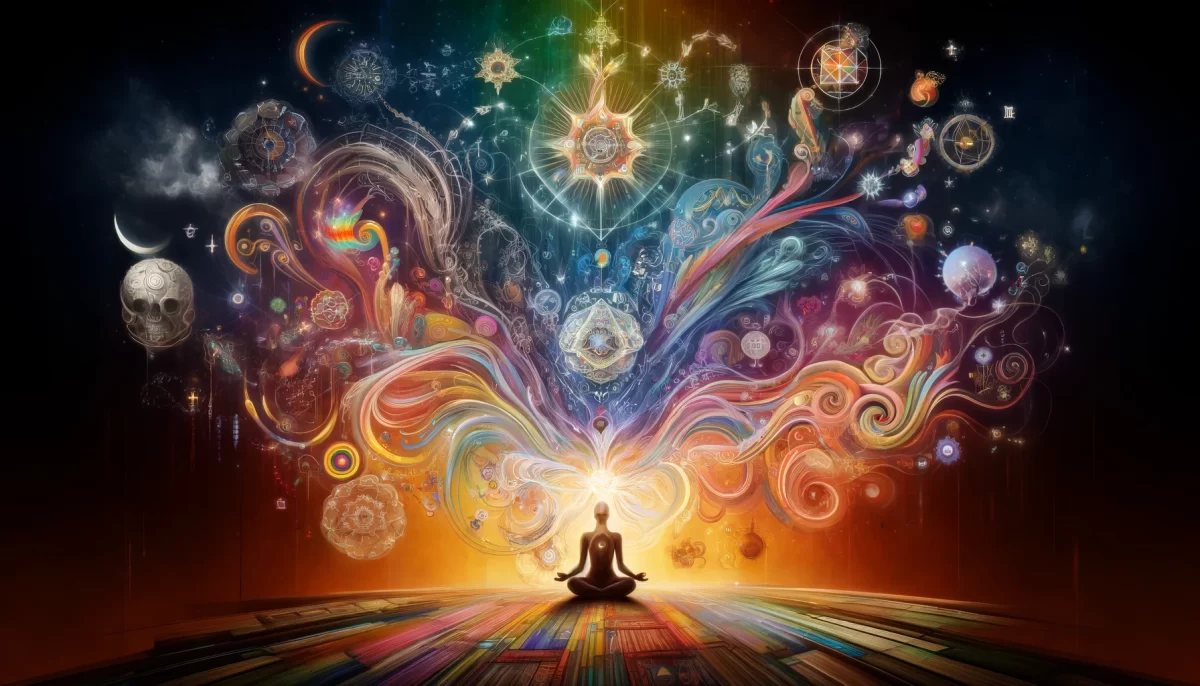
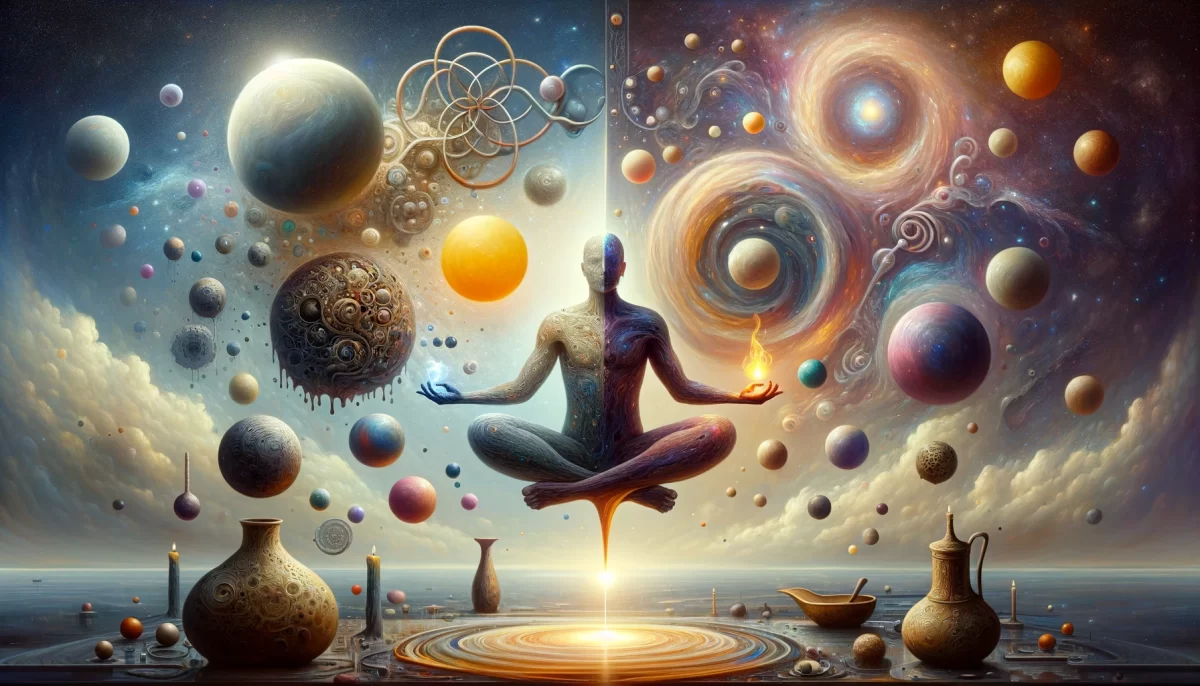

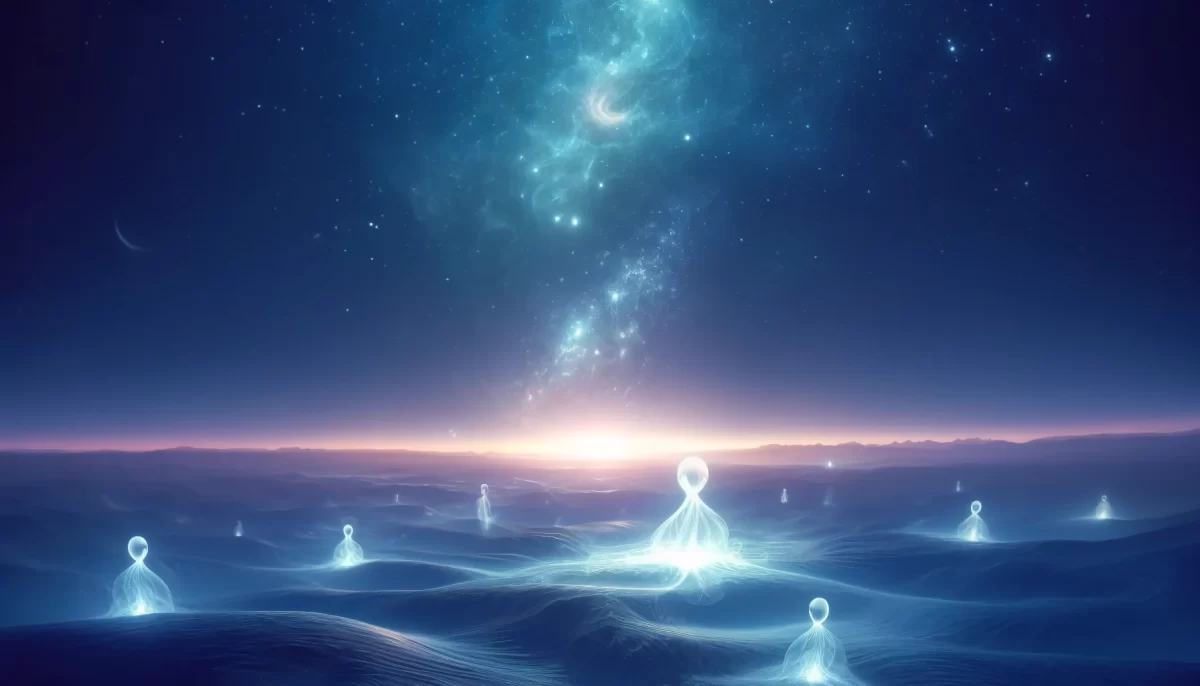
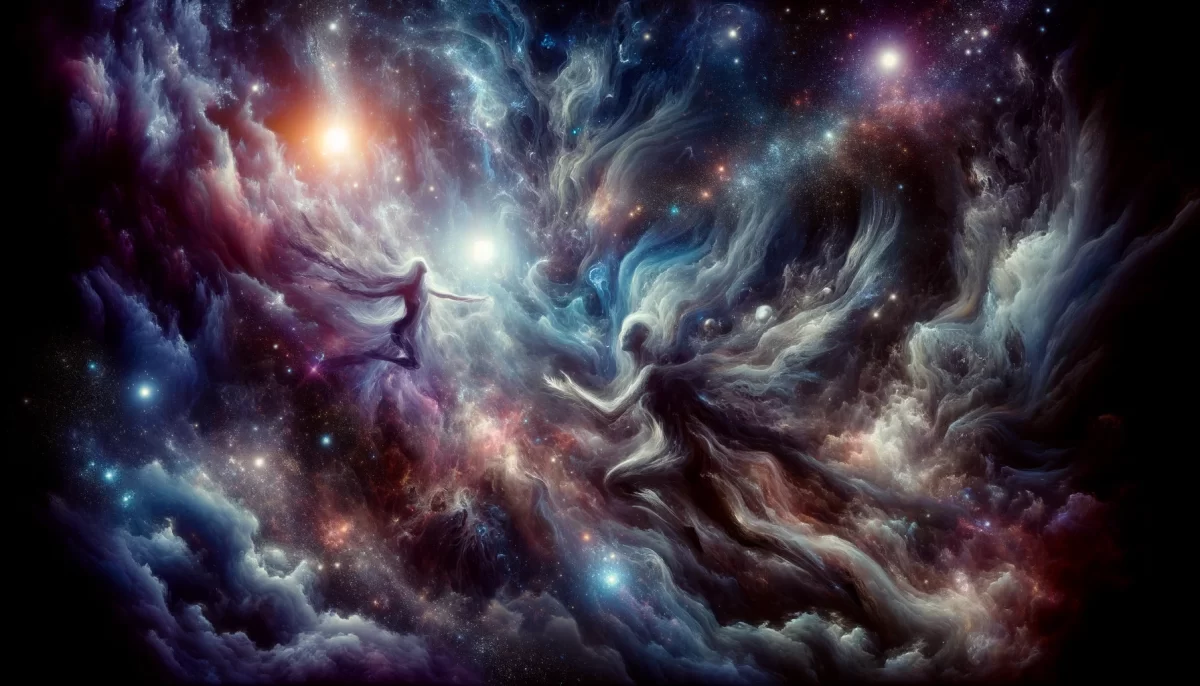



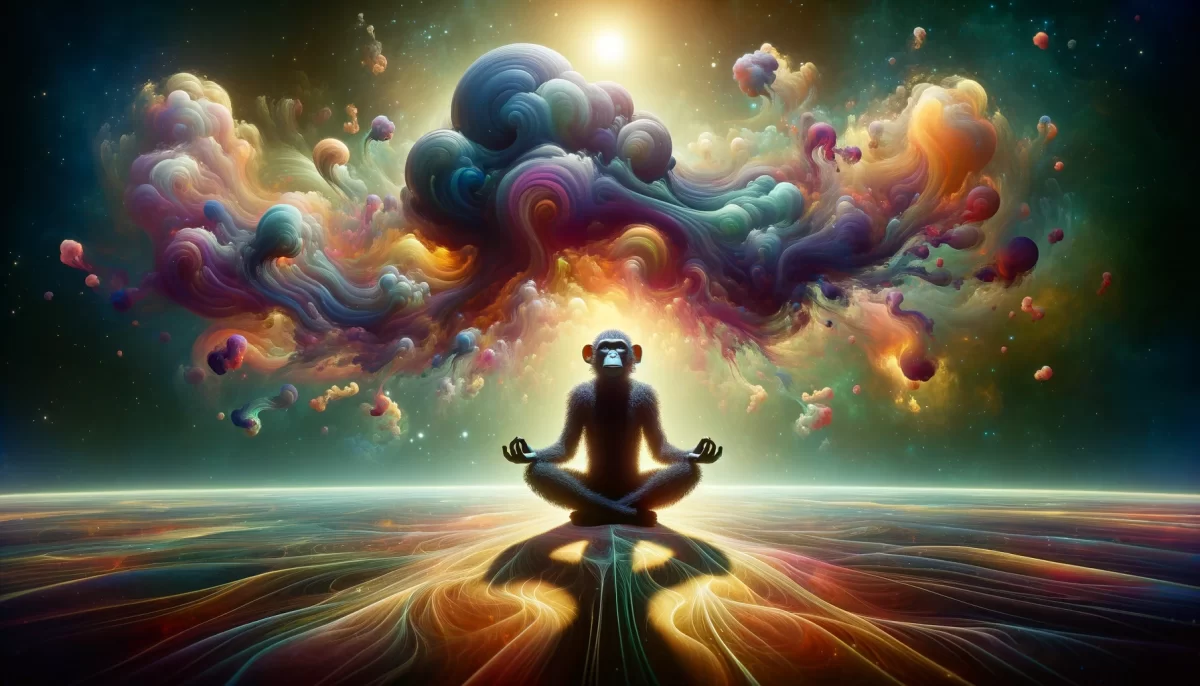
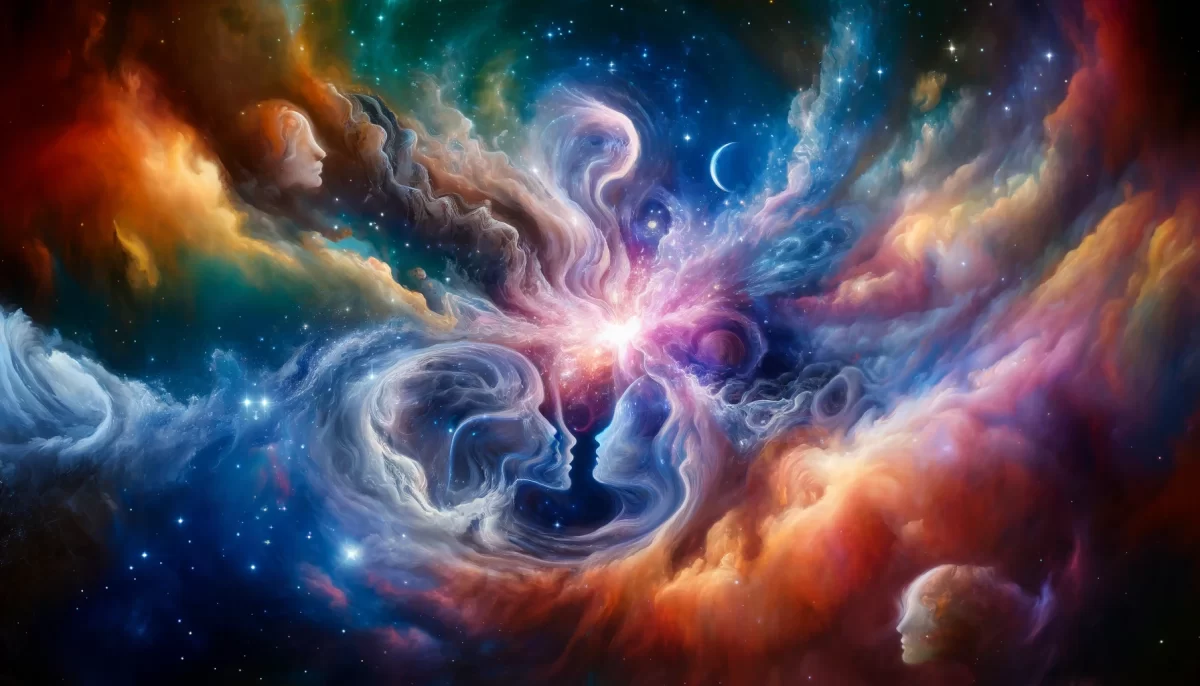
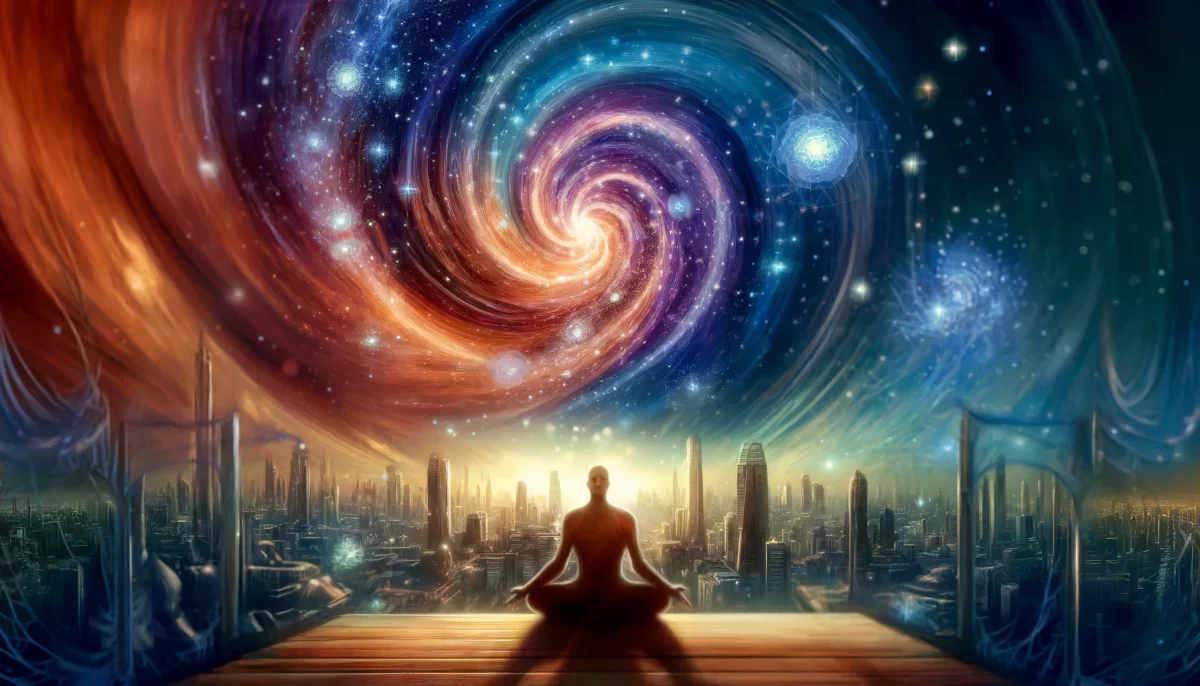
In the realm of perception,
presence is but a mirage,
a reflection of our own mind,
an imposition we discharge.
The thing itself remains unchanged,
unaware of our projected sight,
its essence lies beyond our grasp,
in depths concealed, out of our light.
It is our choice to give it presence,
to shape its form within our thought,
yet without our conscious gaze,
it fades, into the void it’s brought.
Why then do we grant such power,
to make things present or unseen?
In our perception lies the key,
to create or dissolve the scene.
Invisible or seen, it matters not,
the thing remains as it has been,
presence is a transient veil,
it’s our perception that we glean.